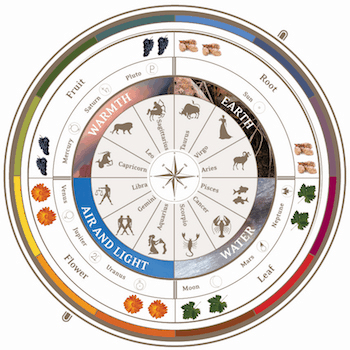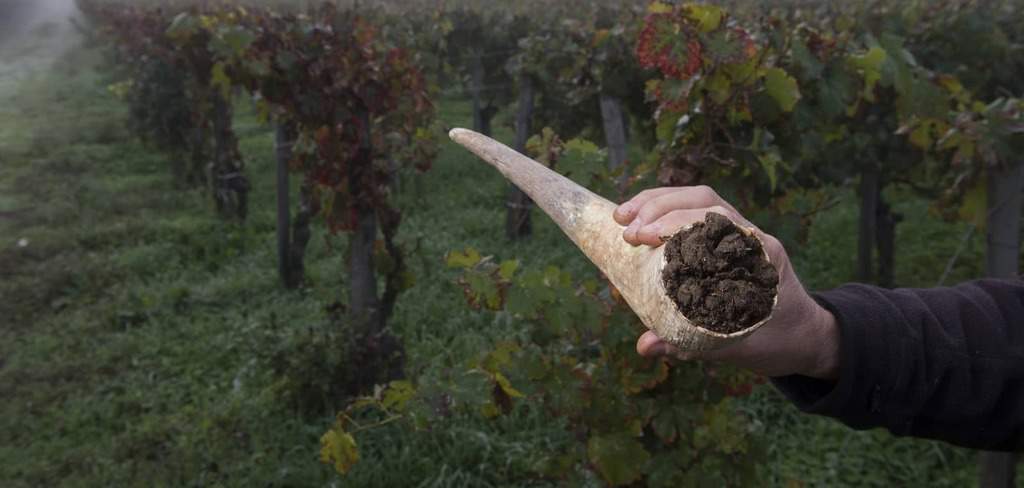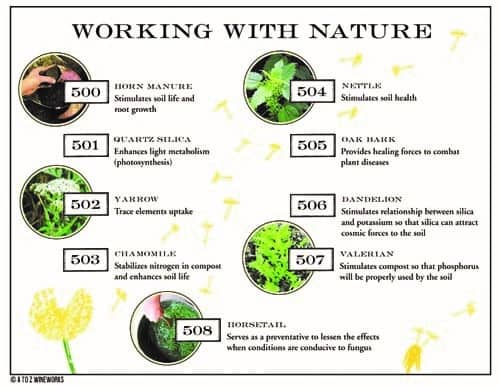Biodynamic wine may sound witchy and out-there, but the practice is based on science and forces of nature. Nonetheless, they are positively mystical. The official definition of biodynamic farming according to the Biodynamic Farming and Gardening Association is “a spiritual-ethical-ecological approach to agriculture, gardens, food production and nutrition.”
Upon reading the breakdown of what goes into biodynamic viticulture and viniculture, you might find yourself skeptical. Many winemakers, reviewers, oenologists, viticulturists etc. have been of the same mindset—that being said, there are also a number of these skeptics that, while they can’t back the reasoning, state that these wines are simply better. It is widely said that the terroir shines through in these wines and that you can “taste” where the wine was grown. This is said to be because the soil is healthier. There is a method to the madness, no cauldrons necessary.
Biodynamic Winemaking Practices
It might sound like part of a witches spell to pack a cow horn with ground quartz crystals and then bury it in the ground, but in truth, it strengthens photosynthesis and enhances ripening. Each of the preparations have their place and reasoning behind it. The basis of this type of farming is a dynamic relationship with soil, water, air, warmth, and cosmos.
The compost preparations are a scientific combination of six medicinal herb extracts: Double Double Toil and Trouble
- Yarrow
- Chamomile
- Stinging nettle
- Oak bark
- Dandelion
- Valerian
- Eye of Newt (just kidding)

These are utilized for different reasons and in varying ways. As an example: preparation 500 is fresh cow manure from a female, lactating cow that resides on a Biodynamic farm. The manure is packed into a cow horn, ideally from a cow that resides on the Biodynamic farm where the preparations are made, but otherwise from a cow with a known, happy quality of life. The packed horn is then buried in the fall and unearthed the following spring. You can see all the preparations here.
The brainchild of Austrian scientist and philosopher Rudolf Steiner, this practice regulates viticulture by the biodynamic calendar. In 1924, he spoke of life forces linking together the universe and all living things. He suggested there are preferred days to sow, prune etc. related to cosmic and lunar rhythms and that the energy of plants can be affected by the energy of the moon, stars and planets.

Maria Thun, a farmer in Darmstadt, Germany with a keen interest in biodynamics, decided to subject Steiner’s principles to controlled trials, beginning with radishes. Planting the vegetables when the moon was in different constellations, she discovered, resulted in their growing into different forms and sizes. After years of experimenting, she made the biodynamic calendar in 1962. Each biodynamic calendar day coincides with one of the four classical elements of Earth, Fire, Air and Water. There are four types of days: Fruit Days: Best days for harvesting grapes, Root Days: Ideal days for pruning, Flower Days: Leave the vineyard alone on these days, Leaf Days: Ideal days for watering plants.
Biodynamic Wineries Worth Sampling
Here are a few biodynamic wineries that have widely available wines to try. Look for the Demeter certification on the back label, named for the Greek goddess of agriculture.
I hope they cast a spell over you, as they did me!
- Lunar Apogé (Côtes du Rhône, France)
- Chapoutier (Numerous locations in the Rhône, France)
- Avondale (South Africa)
- Bonterra (Mendocino, CA)
- Montinore Estate (Willamette Valley, OR)
- Occipinti SP68 (Sicily, Italy)
- Kühn (Pfalz, Germany)

